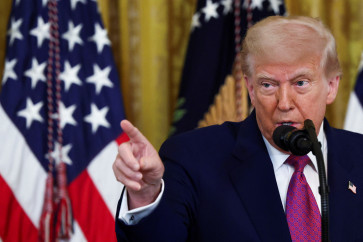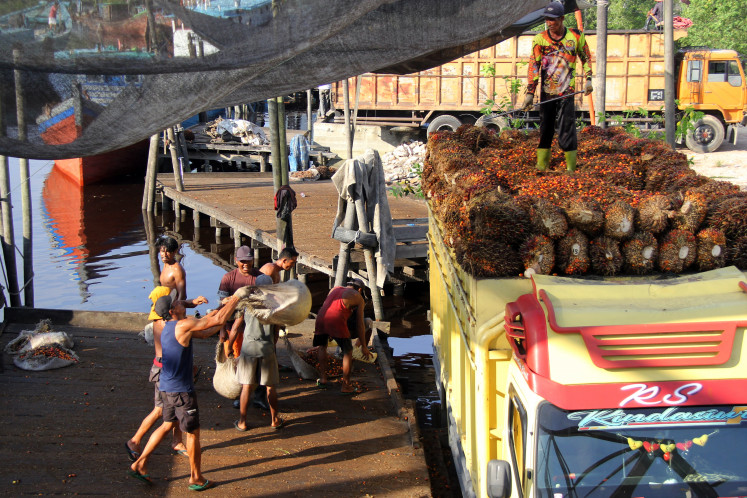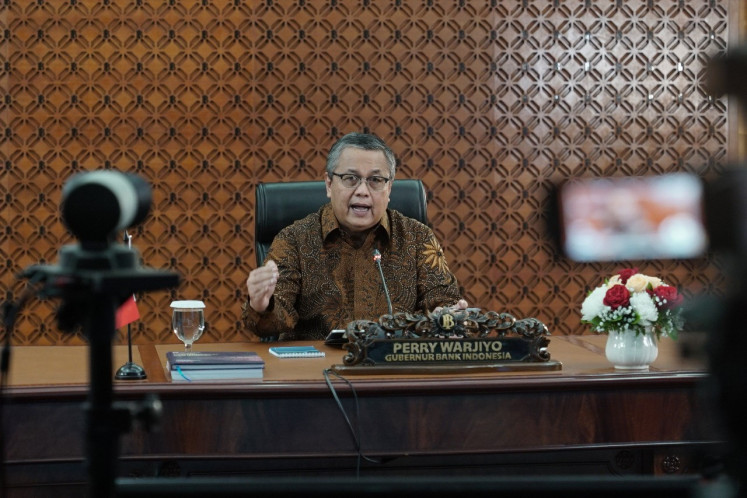Popular Reads
Top Results
Can't find what you're looking for?
View all search resultsPopular Reads
Top Results
Can't find what you're looking for?
View all search resultsSimultaneous polls to save money and minimize conflict: Observers
The government needs to adopt simultaneous elections as people are getting fed up with recurring elections at national, provincial and regency levels, activists and poll organizers have said
Change text size
Gift Premium Articles
to Anyone
T
he government needs to adopt simultaneous elections as people are getting fed up with recurring elections at national, provincial and regency levels, activists and poll organizers have said.
Not only would simultaneous elections save state funds, they would also minimize conflicts among supporters of political candidates.
Although the technical details are currently under debate, most people, from lawmakers to analysts, agree that simultaneous elections would be much more effectual and conducive to democracy.
“Recurring elections have burdened voters because we have apparently voted for leaders who have brought no changes [to the country],” executive director of NGO Lingkar Madani, Ahmad Fauzi Rangkuti, told a discussion at the Regional Representatives Council (DPD) in Jakarta on Friday.
Rangkuti said simultaneous elections would be more efficient and also reduce potential violence before and after elections.
Meanwhile, General Elections Commission (KPU) member Hadar Nafis Gumay said the government and the House of Representatives (DPR) should start drafting legislation to allow simultaneous elections.
“The KPU supports simultaneous elections because it is advantageous in all aspects. Therefore, we must prepare a law to make the idea into reality,” Hadar said.
“Whichever of the [existing] laws needs to be revised, the revision to adopt simultaneous elections should be made by the end of this year at the latest because the KPU needs time to prepare,” he added.
Once approved, the country could hold its first simultaneous election in 2019.
Meanwhile, lawmaker Arif Wibowo of the Indonesian Democratic Party of Struggle (PDI-P) said that the House was currently discussing the possibility of holding elections to vote for regional leaders, members of the regional councils, members of the House, and president and vice president on the same day.
“We are examining the technicalities to allow us to arrange simultaneous elections. No matter what, simultaneous elections suit our kind of multi-party democracy,” he said.
He added that the House was initiating a revision to the 2009 Law on Presidential Elections to simultaneously hold the legislative and presidential elections in 2014.
“We think that we could organize a simultaneous election to vote for members of the regional councils, the House, and president and vice president within the next two years. I know that such a plan might challenge the Constitution, but for us it’s the only way to build a permanent coalition between political parties,” he said.
In addition to technical details, problems relating to regional leaders elected ahead of 2019, and whose terms would end in later years, need to be addressed.
In relation to a simultaneous election held as soon as 2014, the KPU says there would be around 100 provinces, regencies and municipalities, whose leaders’ terms would have ended in 2013.
Debate would arise whether or not these terms should be extended a year to allow for the holding of such a simultaneous election.
“We will deliberate a law to regulate the details. All regional leaders must then submit to the law,” Arif said.
During the discussion, Rangkuti also lamented the fact that Indonesia alienated potential voters due to the government’s poor performance and rampant corruption involving public officials and lawmakers.
“The public’s trust in the government and lawmakers is declining, hardly a leader in this country is trusted,” he said.










